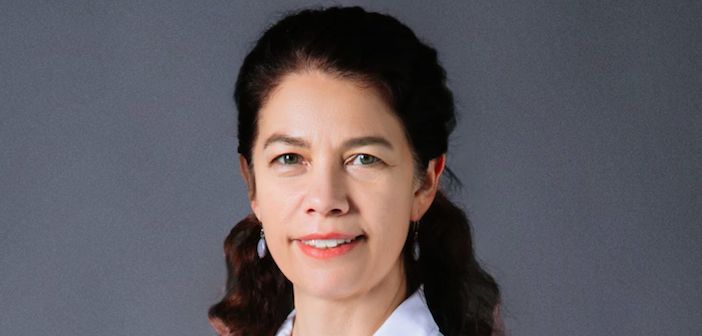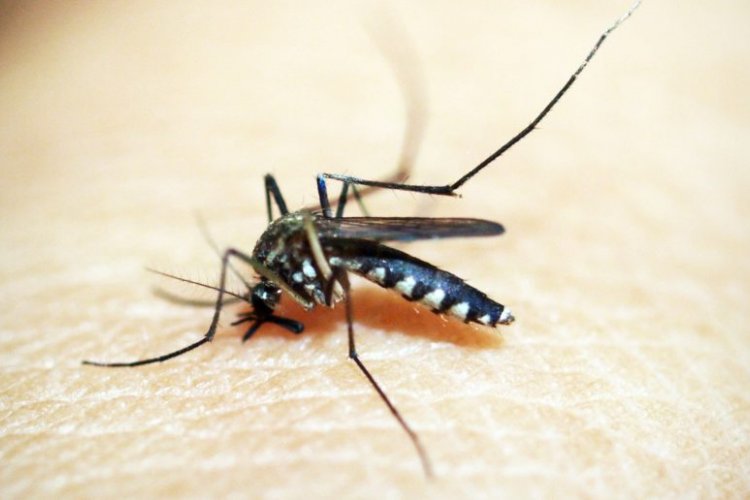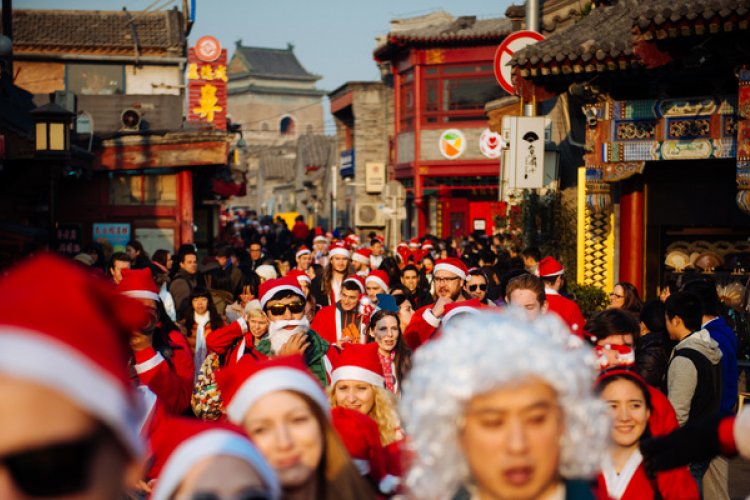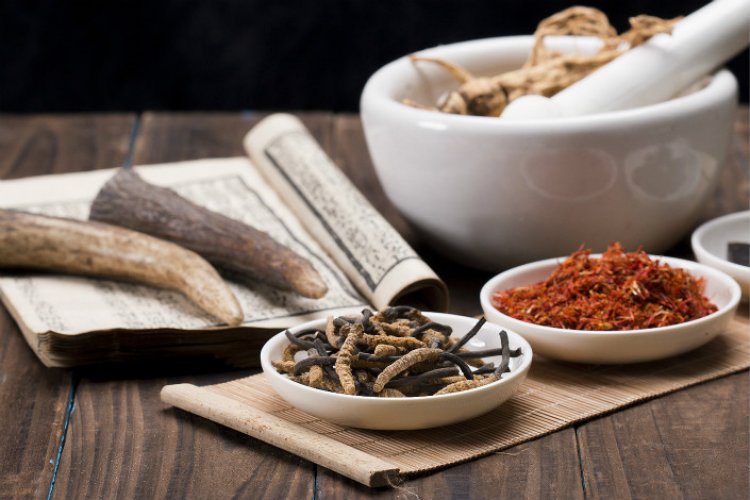A Modern Physician’s Take on Traditional Chinese Medicine
Today, we profile Dr. Shelley Ochs, a Beijing-based physician specializing in Traditional Chinese Medicine (TCM).
Dr. Ochs is a long-term American expat with an impressive educational background. An Honors BA in Chinese Language and Literature from the University of Wisconsin, Madison, which led to a Master’s degree in Traditional Chinese Medicine from the American College of Chinese Medicine and a Ph.D. from the Chinese Academy of Medical Sciences. She has gone on to teach, train, interpret, and of course practice at more prestigious institutions than I have fingers and toes, both in America and China. She is currently practicing at Beijing United Family and teaching at the Beijing Center for China Studies. However, her pedigree might be the least impressive thing about her. In the middle of her incredibly robust schedule, she found time to talk with me about her fascinating life.
It’s unusual for a Westerner to practice TCM as their specialty, isn’t it? How did you find your way to this field?
I was actually living in Taiwan when I was 19 and the pollution was really affecting my lungs. I tried TCM and it broke the cycle of infections. After that experience, I wanted to study it but I was told it was too late and it would be impossible for me because most people begin studying when they are children. I was told by one friend that it was like saying I wanted to learn to be a pilot or a ballerina.
But I quickly learned there were 48 schools with programs in TCM in the United States. Since I was relatively fluent in Chinese from my four years in Taiwan, I chose to finish a BA in Chinese literature and then move to San Francisco to study Chinese medicine in Chinese.
What did your parents think about this path?
They were just happy I had chosen something that offered real-world job opportunities instead of only being able to become an academic.
You’re in a really unique position to educate expats about TCM. What are some misconceptions Westerners have about it?
There are two big ones I can think of. The first is that people mistakenly think the effects of TCM are temporary so if you stop the treatments your symptoms will return. But the opposite is true. The goal of TCM is to shift the balance of the body so that it can heal itself. We are trying to remove blockages and nudge the system so your natural ability to heal is triggered and reinforced.
The other is the idea of using endangered animals as medicine. While that has been a part of the folk culture in the past, it’s actually a forbidden practice now that is strictly regulated. In licensed hospitals and clinics in China professional practitioners are not prescribing herbal medicine with endangered species. The problem is the trade and the profits from the trade, which is primarily through the black market in East and Southeast Asia.
You mentioned the folk culture which is what most people associate with TCM. But Chinese medicine has a very long history. How has it evolved?
In the 1950s and 60s there was a lot of government support for TCM because it was what was readily available to most communities. But as more practitioners and more facilities for biomedicine became available, the population began to embrace Western medicine and new forms of “integrated Chinese-Western medicine” emerged. In recent years Chinese medicine has gained a bit in popularity because it’s effective for treating conditions that many people in China are now suffering from, such as weight gain, hypertension, infertility, depression, anxiety, and insomnia.
Both in China and in other parts of the world, Chinese medicine is also used as a complementary therapy. For example, acupuncture and TCM herbal remedies can help in reducing the side-effects of chemo therapy.
We are also seeing a consumer-driven desire for TCM in the West. The Cleveland Clinic recently made a big splash by bringing on a full time TCM herbalist. Some hospitals in Australia, the UK, Canada and the US have integrated acupuncture treatments or refer to TCM professionals.
Has modern science been able to explain why TCM is effective?
Clinical trials can evaluate the effectiveness of TCM treatments without knowing the underlying mechanisms of action in biomedical terms. You can compare treatment to placebo, or usual care (with biomedicine) to usual care plus, with the plus being acupuncture or herbal medicine. But if we insist on explaining the effects in terms of biochemistry and modern physiology, then we find that the answers are often elusive. We simply don’t use—or need—biomedical explanations for most of what we do. Traditional concepts of the mind-body complex and the interventions based on this are not dependent on modern medicine. However, we do also look at laboratory markers and modern diagnostics when evaluating patient outcomes.
There has been some important progress in the field of acupuncture. MRI’s have revolutionized what we know about how the brain and central nervous system respond to acupuncture needling. Connections between traditional points on the body and repeatable, consistent responses in the brain have convinced many former skeptics that it’s a valid practice.
However, exactly how signals are conducted in the body is still an unanswered question. One of the most widely-accepted hypotheses is that connective tissue is the main medium.
Who normally comes to see you and what sort of conditions do you usually treat?
I tend to treat about 70 percent expats and 30 percent local residents, and it’s interesting because so many of the issues people face are stress-induced. It’s just different stressors. Expats often need help with exhaustion, anxiety, and insomnia triggered by the stress of moving to a new country. Locals often are referred for more serious issues like hypertension, or are seeking help with infertility. They tend to be dealing with the stress of caring for elderly parents, small children, work, school, and money issues all at the same time.
The big health story in 2020/21 is obviously Covid. Does TCM have a place in the treatment of the pandemic?
In conjunction with modern medicine, yes. In fact the combination in Hubei and elsewhere has been shown to lead to vastly improved outcomes. One of the things China did to help curb the disease was to treat close contacts and suspected cases, not just confirmed cases. Local clinics in Wuhan and large, converted “shelter-hospitals” offered TCM to over 50,000 people. For example, at one hospital, TCM was used to treat about 400 patients with mild or moderate disease from COVID-19 and none of those patients progressed to more serious disease. At other clinics where TCM was not used the average progression rate was 6.5 percent.
In addition to being a physician, teacher, translator, and writer, you are also an expat mom. What are some of the rewards and challenges of raising a third culture kid and what do you hope she gets from the experience?
It’s interesting because my daughter is about to graduate from a public elementary school where she is the only foreigner in her class. She has lived in China her entire life and speaks fluent Mandarin but holds an American passport. When asked where she is from she says “My mom is American, my dad is Chinese, and I was born in Beijing.” It can be complicated to find a sense of belonging as a third-culture kid, but I want her to learn the social skills and resiliency that will allow her to be comfortable anywhere in the world. She will be going to an international high school where she can continue to be educated bilingually. I hope her upbringing has given her a strong sense of empathy and tolerance for others, while also learning to hold on to the core values that I think make life meaningful.
This blog originally appeared on our sister site, Jingkids International.
READ: Tong Ren Tang Artfully Combines Espresso, TCM Herbs at Their Coffee Shop
Photo: Shelley Ochs







